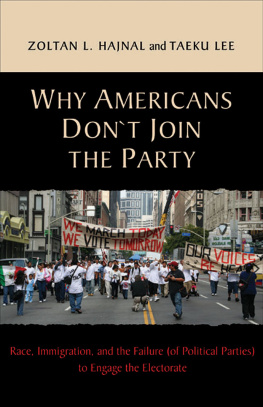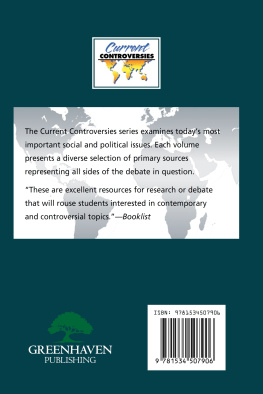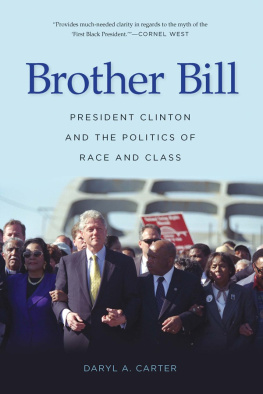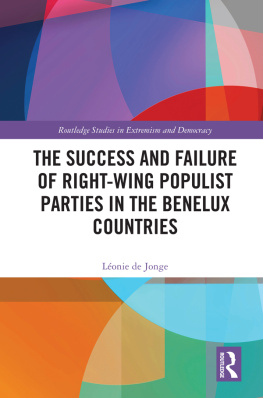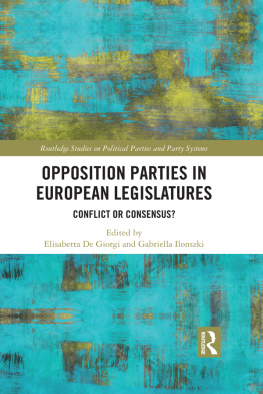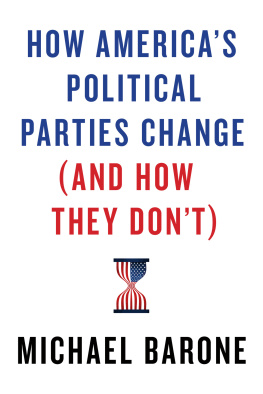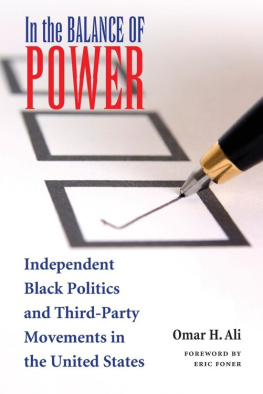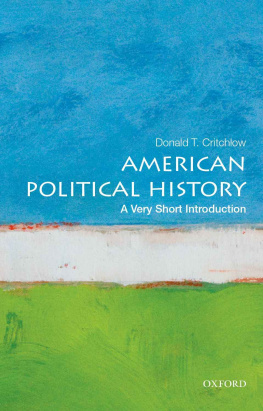Zoltan L. Hajnal - Why Americans Dont Join the Party: Race, Immigration, and the Failure (Of Political Parties) to Engage the Electorate
Here you can read online Zoltan L. Hajnal - Why Americans Dont Join the Party: Race, Immigration, and the Failure (Of Political Parties) to Engage the Electorate full text of the book (entire story) in english for free. Download pdf and epub, get meaning, cover and reviews about this ebook. year: 2011, publisher: Princeton University Press, genre: Politics. Description of the work, (preface) as well as reviews are available. Best literature library LitArk.com created for fans of good reading and offers a wide selection of genres:
Romance novel
Science fiction
Adventure
Detective
Science
History
Home and family
Prose
Art
Politics
Computer
Non-fiction
Religion
Business
Children
Humor
Choose a favorite category and find really read worthwhile books. Enjoy immersion in the world of imagination, feel the emotions of the characters or learn something new for yourself, make an fascinating discovery.
- Book:Why Americans Dont Join the Party: Race, Immigration, and the Failure (Of Political Parties) to Engage the Electorate
- Author:
- Publisher:Princeton University Press
- Genre:
- Year:2011
- Rating:3 / 5
- Favourites:Add to favourites
- Your mark:
- 60
- 1
- 2
- 3
- 4
- 5
Why Americans Dont Join the Party: Race, Immigration, and the Failure (Of Political Parties) to Engage the Electorate: summary, description and annotation
We offer to read an annotation, description, summary or preface (depends on what the author of the book "Why Americans Dont Join the Party: Race, Immigration, and the Failure (Of Political Parties) to Engage the Electorate" wrote himself). If you haven't found the necessary information about the book — write in the comments, we will try to find it.
Zoltan L. Hajnal: author's other books
Who wrote Why Americans Dont Join the Party: Race, Immigration, and the Failure (Of Political Parties) to Engage the Electorate? Find out the surname, the name of the author of the book and a list of all author's works by series.
Why Americans Dont Join the Party: Race, Immigration, and the Failure (Of Political Parties) to Engage the Electorate — read online for free the complete book (whole text) full work
Below is the text of the book, divided by pages. System saving the place of the last page read, allows you to conveniently read the book "Why Americans Dont Join the Party: Race, Immigration, and the Failure (Of Political Parties) to Engage the Electorate" online for free, without having to search again every time where you left off. Put a bookmark, and you can go to the page where you finished reading at any time.
Font size:
Interval:
Bookmark:
Taeku Lee
PRINCETON AND OXFORD
Requests for permission to reproduce material from this work should be sent to Permissions,
Princeton University Press
In the United Kingdom: Princeton University Press, 6 Oxford Street, Woodstock,
Oxfordshire OX20 1TW
Why Americans dont join the party : race, immigration, and the failure (of political parties) to engage the electorate / Zoltan L. Hajnal, Taeku Lee.
p. cm.
Includes bibliographical references and index.
ISBN 978-0-691-14878-6 (hardcover : alk. paper) ISBN 978-0-691-14879-3 (pbk. : alk. paper) 1. Identity politicsUnited States. 2. AllegianceUnited States. 3. Political alienationUnited States. 4. Democratic Party (U.S.)Membership. 5. Republican Party (U.S. : 1854 )Membership. 6. African Americans Politics and government. 7. United StatesEmigration and immigrationPolitical aspects. I. Lee, Taeku. II. Title.
JK1764.H34 2011
324.273011dc22 2010029112
Introduction
Party Identifcation: The Historical and Ontological Origins of a Concept
Identity, Ideology, Information, and the Dimensionality of Nonpartisanship
Leaving the Mule Behind: Independents and African American Partisanship
What Does It Mean to Be a Partisan?
The Sequential Logic of Latino and Asian American Partisanship
Beyond the Middle: Ambivalence, Extremism, and White Nonpartisans
The Electoral Implications of Nonpartisanship
Conclusion
Font size:
Interval:
Bookmark:
Similar books «Why Americans Dont Join the Party: Race, Immigration, and the Failure (Of Political Parties) to Engage the Electorate»
Look at similar books to Why Americans Dont Join the Party: Race, Immigration, and the Failure (Of Political Parties) to Engage the Electorate. We have selected literature similar in name and meaning in the hope of providing readers with more options to find new, interesting, not yet read works.
Discussion, reviews of the book Why Americans Dont Join the Party: Race, Immigration, and the Failure (Of Political Parties) to Engage the Electorate and just readers' own opinions. Leave your comments, write what you think about the work, its meaning or the main characters. Specify what exactly you liked and what you didn't like, and why you think so.

